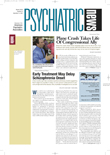The Joint Commission on Accreditation of Healthcare Organizations (JCAHO) has unveiled a “new, improved” accreditation process that focuses more on patient safety and quality of care and less on the paperwork burden of the traditional survey process.
Titled “Shared Pathways, New Visions,” the restyled process “shifts the paradigm from a focus on survey preparation to one of continuous operational improvement,” said JCAHO’s Russ Massaro, M.D. “In so doing, it enables the accreditation process to become more of a service than a commodity.”
Massaro is the JCAHO’s executive vice president for accreditation operations.
One major goal of the new system, he added, is to “provide a continuous picture of an organization’s performance” in part by shifting the focus of JCAHO accreditation criteria to the way in which a facility delivers clinical care.
According to the JCAHO publication Perspectives, the organization hopes the revised program will boost facilities’ satisfaction with the accreditation process and decrease the costs they expend in conjunction with JCAHO surveys. Another key goal is to “increase the public’s confidence” that hospitals and other facilities that treat their medical problems are focused on patient-safety and quality-of-care standards.
The review, begun in October 2000, focuses on the standards that have the most direct impact on patient safety and quality of care. The team that conducted the review searched for standards that have become redundant, since they “are now common practice in the industry and no longer need to be assessed,” according to the Perspectives article.
Joseph T. English, M.D., a JCAHO commissioner and former president of APA, described the revised review procedure as “a stage in the evolution of the accreditation process, and not the end point.” What JCAHO envisions, he told Psychiatric News, is “a time when the relationship between a hospital and the commission is one of continuous information flow, and site visits would be triggered only when information suggests that an institution needs help.”
The JCAHO would then intervene in a “consultative” rather than punitive role, he pointed out. He expects the new process to reverse the current situation from one in which hospitals are “often hesitant to share information to one in which they are eager to do so.” Frequently, he noted, hospitals view JCAHO reviews as “much ado about trivia” and too wrapped up in the superficial.
The new standards will go into effect in January 2004 and will apply to ambulatory care, behavioral health care, and long-term-care facilities, as well as to hospitals, laboratories, and home care.
For psychiatric facilities the changes should be especially important, English suggested, because the revised procedures will focus much more “on what psychiatric care is all about.” Psychiatric hospital administrators and staff will be able “to engage more effectively [with the new process] than by relating to a book of procedures and policies.”
To allay concerns of facility administrators, JCAHO officials emphasize that the restyled survey process will not be adding new requirements. “The modifications are mostly deletions, consolidations, or clarifications of existing standards.”
The new review procedure will also introduce a self-assessment process, which facilities will complete at the 18-month mark in their three-year accreditation cycle. Facility administrators will be able to complete this via computer, and there will be no accompanying on-site inspection survey. When a facility identifies during the self-assessment review corrective actions it must take, it will be responsible for implementing them prior to the three-year on-site survey. The facility will submit its plan for correcting its compliance problems to the JCAHO central office, where staff will either accept the proposed actions or suggest ways in which the facility can improve on its corrective plan. Identifying areas in which corrective action is needed does not come with any penalty or threat to accreditation status.
The press release announcing the new accreditation process is posted at www.jcaho.org/news+room/latest+news+release/svnp_nr.htm. ▪
